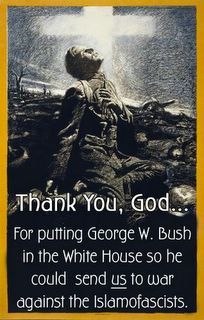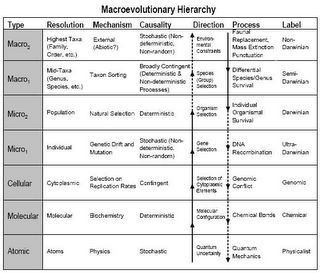Published on 17 Jan 2006 by
Energy Bulletin. Archived on 17 Jan 2006.
The Proposed Iranian Oil Bourse
by Krassimir Petrov
I. Economics of Empires
A nation-state taxes its own citizens, while an empire taxes other nation-states. The history of empires, from Greek and Roman, to Ottoman and British, teaches that the economic foundation of every single empire is the taxation of other nations. The imperial ability to tax has always rested on a better and stronger economy, and as a consequence, a better and stronger military. One part of the subject taxes went to improve the living standards of the empire; the other part went to strengthen the military dominance necessary to enforce the collection of those taxes.Historically, taxing the subject state has been in various forms—usually gold and silver, where those were considered money, but also slaves, soldiers, crops, cattle, or other agricultural and natural resources, whatever economic goods the empire demanded and the subject-state could deliver. Historically, imperial taxation has always been direct: the subject state handed over the economic goods directly to the empire. For the first time in history, in the twentieth century, America was able to tax the world indirectly, through inflation. It did not enforce the direct payment of taxes like all of its predecessor empires did, but distributed instead its own fiat currency, the U.S. Dollar, to other nations in exchange for goods with the intended consequence of inflating and devaluing those dollars and paying back later each dollar with less economic goods—the difference capturing the U.S. imperial tax. Here is how this happened.Early in the 20th century, the U.S. economy began to dominate the world economy. The U.S. dollar was tied to gold, so that the value of the dollar neither increased, nor decreased, but remained the same amount of gold. The Great Depression, with its preceding inflation from 1921 to 1929 and its subsequent ballooning government deficits, had substantially increased the amount of currency in circulation, and thus rendered the backing of U.S. dollars by gold impossible. This led Roosevelt to decouple the dollar from gold in 1932. Up to this point, the U.S. may have well dominated the world economy, but from an economic point of view, it was not an empire. The fixed value of the dollar did not allow the Americans to extract economic benefits from other countries by supplying them with dollars convertible to gold.Economically, the American Empire was born with Bretton Woods in 1945. The U.S. dollar was not fully convertible to gold, but was made convertible to gold only to foreign governments. This established the dollar as the reserve currency of the world. It was possible, because during WWII, the United States had supplied its allies with provisions, demanding gold as payment, thus accumulating significant portion of the world’s gold. An Empire would not have been possible if, following the Bretton Woods arrangement, the dollar supply was kept limited and within the availability of gold, so as to fully exchange back dollars for gold. However, the guns-and-butter policy of the 1960’s was an imperial one: the dollar supply was relentlessly increased to finance Vietnam and LBJ’s Great Society. Most of those dollars were handed over to foreigners in exchange for economic goods, without the prospect of buying them back at the same value. The increase in dollar holdings of foreigners via persistent U.S. trade deficits was tantamount to a tax—the classical inflation tax that a country imposes on its own citizens, this time around an inflation tax that U.S. imposed on rest of the world.When in 1970-1971 foreigners demanded payment for their dollars in gold, The U.S. Government defaulted on its payment on August 15, 1971. While the popular spin told the story of “severing the link between the dollar and gold”, in reality the denial to pay back in gold was an act of bankruptcy by the U.S. Government. Essentially, the U.S. declared itself an Empire. It had extracted an enormous amount of economic goods from the rest of the world, with no intention or ability to return those goods, and the world was powerless to respond— the world was taxed and it could not do anything about it. From that point on, to sustain the American Empire and to continue to tax the rest of the world, the United States had to force the world to continue to accept ever-depreciating dollars in exchange for economic goods and to have the world hold more and more of those depreciating dollars. It had to give the world an economic reason to hold them, and that reason was oil. In 1971, as it became clearer and clearer that the U.S Government would not be able to buy back its dollars in gold, it made in 1972-73 an iron-clad arrangement with Saudi Arabia to support the power of the House of Saud in exchange for accepting only U.S. dollars for its oil. The rest of OPEC was to follow suit and also accept only dollars. Because the world had to buy oil from the Arab oil countries, it had the reason to hold dollars as payment for oil. Because the world needed ever increasing quantities of oil at ever increasing oil prices, the world’s demand for dollars could only increase. Even though dollars could no longer be exchanged for gold, they were now exchangeable for oil. The economic essence of this arrangement was that the dollar was now backed by oil. As long as that was the case, the world had to accumulate increasing amounts of dollars, because they needed those dollars to buy oil. As long as the dollar was the only acceptable payment for oil, its dominance in the world was assured, and the American Empire could continue to tax the rest of the world. If, for any reason, the dollar lost its oil backing, the American Empire would cease to exist. Thus, Imperial survival dictated that oil be sold only for dollars. It also dictated that oil reserves were spread around various sovereign states that weren’t strong enough, politically or militarily, to demand payment for oil in something else. If someone demanded a different payment, he had to be convinced, either by political pressure or military means, to change his mind. The man that actually did demand Euro for his oil was Saddam Hussein in 2000. At first, his demand was met with ridicule, later with neglect, but as it became clearer that he meant business, political pressure was exerted to change his mind. When other countries, like Iran, wanted payment in other currencies, most notably Euro and Yen, the danger to the dollar was clear and present, and a punitive action was in order. Bush’s Shock-and-Awe in Iraq was not about Saddam’s nuclear capabilities, about defending human rights, about spreading democracy, or even about seizing oil fields; it was about defending the dollar, ergo the American Empire. It was about setting an example that anyone who demanded payment in currencies other than U.S. Dollars would be likewise punished.Many have criticized Bush for staging the war in Iraq in order to seize Iraqi oil fields. However, those critics can’t explain why Bush would want to seize those fields—he could simply print dollars for nothing and use them to get all the oil in the world that he needs. He must have had some other reason to invade Iraq. History teaches that an empire should go to war for one of two reasons: (1) to defend itself or (2) benefit from war; if not, as Paul Kennedy illustrates in his magisterial The Rise and Fall of the Great Powers, a military overstretch will drain its economic resources and precipitate its collapse. Economically speaking, in order for an empire to initiate and conduct a war, its benefits must outweigh its military and social costs. Benefits from Iraqi oil fields are hardly worth the long-term, multi-year military cost. Instead, Bush must have went into Iraq to defend his Empire. Indeed, this is the case: two months after the United States invaded Iraq, the Oil for Food Program was terminated, the Iraqi Euro accounts were switched back to dollars, and oil was sold once again only for U.S. dollars. No longer could the world buy oil from Iraq with Euro. Global dollar supremacy was once again restored. Bush descended victoriously from a fighter jet and declared the mission accomplished—he had successfully defended the U.S. dollar, and thus the American Empire.
II. Iranian Oil Bourse
The Iranian government has finally developed the ultimate “nuclear” weapon that can swiftly destroy the financial system underpinning the American Empire. That weapon is the Iranian Oil Bourse slated to open in March 2006. It will be based on a euro-oil-trading mechanism that naturally implies payment for oil in Euro. In economic terms, this represents a much greater threat to the hegemony of the dollar than Saddam’s, because it will allow anyone willing either to buy or to sell oil for Euro to transact on the exchange, thus circumventing the U.S. dollar altogether. If so, then it is likely that almost everyone will eagerly adopt this euro oil system:· The Europeans will not have to buy and hold dollars in order to secure their payment for oil, but would instead pay with their own currencies. The adoption of the euro for oil transactions will provide the European currency with a reserve status that will benefit the European at the expense of the Americans.· The Chinese and the Japanese will be especially eager to adopt the new exchange, because it will allow them to drastically lower their enormous dollar reserves and diversify with Euros, thus protecting themselves against the depreciation of the dollar. One portion of their dollars they will still want to hold onto; a second portion of their dollar holdings they may decide to dump outright; a third portion of their dollars they will decide to use up for future payments without replenishing those dollar holdings, but building up instead their euro reserves.· The Russians have inherent economic interest in adopting the Euro – the bulk of their trade is with European countries, with oil-exporting countries, with China, and with Japan. Adoption of the Euro will immediately take care of the first two blocs, and will over time facilitate trade with China and Japan. Also, the Russians seemingly detest holding depreciating dollars, for they have recently found a new religion with gold. Russians have also revived their nationalism, and if embracing the Euro will stab the Americans, they will gladly do it and smugly watch the Americans bleed.· The Arab oil-exporting countries will eagerly adopt the Euro as a means of diversifying against rising mountains of depreciating dollars. Just like the Russians, their trade is mostly with European countries, and therefore will prefer the European currency both for its stability and for avoiding currency risk, not to mention their jihad against the Infidel Enemy.Only the British will find themselves between a rock and a hard place. They have had a strategic partnership with the U.S. forever, but have also had their natural pull from Europe. So far, they have had many reasons to stick with the winner. However, when they see their century-old partner falling, will they firmly stand behind him or will they deliver the coup de grace? Still, we should not forget that currently the two leading oil exchanges are the New York’s NYMEX and the London’s International Petroleum Exchange (IPE), even though both of them are effectively owned by the Americans. It seems more likely that the British will have to go down with the sinking ship, for otherwise they will be shooting themselves in the foot by hurting their own London IPE interests. It is here noteworthy that for all the rhetoric about the reasons for the surviving British Pound, the British most likely did not adopt the Euro namely because the Americans must have pressured them not to: otherwise the London IPE would have had to switch to Euros, thus mortally wounding the dollar and their strategic partner. At any rate, no matter what the British decide, should the Iranian Oil Bourse accelerate, the interests that matter—those of Europeans, Chinese, Japanese, Russians, and Arabs—will eagerly adopt the Euro, thus sealing the fate of the dollar. Americans cannot allow this to happen, and if necessary, will use a vast array of strategies to halt or hobble the operation’s exchange:· Sabotaging the Exchange—this could be a computer virus, network, communications, or server attack, various server security breaches, or a 9-11-type attack on main and backup facilities.· Coup d’état—this is by far the best long-term strategy available to the Americans.· Negotiating Acceptable Terms & Limitations—this is another excellent solution to the Americans. Of course, a government coup is clearly the preferred strategy, for it will ensure that the exchange does not operate at all and does not threaten American interests. However, if an attempted sabotage or coup d’etat fails, then negotiation is clearly the second-best available option.· Joint U.N. War Resolution—this will be, no doubt, hard to secure given the interests of all other member-states of the Security Council. Feverish rhetoric about Iranians developing nuclear weapons undoubtedly serves to prepare this course of action.· Unilateral Nuclear Strike—this is a terrible strategic choice for all the reasons associated with the next strategy, the Unilateral Total War. The Americans will likely use Israel to do their dirty nuclear job.· Unilateral Total War—this is obviously the worst strategic choice. First, the U.S. military resources have been already depleted with two wars. Secondly, the Americans will further alienate other powerful nations. Third, major dollar-holding countries may decide to quietly retaliate by dumping their own mountains of dollars, thus preventing the U.S. from further financing its militant ambitions. Finally, Iran has strategic alliances with other powerful nations that may trigger their involvement in war; Iran reputedly has such alliance with China, India, and Russia, known as the Shanghai Cooperative Group, a.k.a. Shanghai Coop and a separate pact with Syria.Whatever the strategic choice, from a purely economic point of view, should the Iranian Oil Bourse gain momentum, it will be eagerly embraced by major economic powers and will precipitate the demise of the dollar. The collapsing dollar will dramatically accelerate U.S. inflation and will pressure upward U.S. long-term interest rates. At this point, the Fed will find itself between Scylla and Charybdis—between deflation and hyperinflation—it will be forced fast either to take its “classical medicine” by deflating, whereby it raises interest rates, thus inducing a major economic depression, a collapse in real estate, and an implosion in bond, stock, and derivative markets, with a total financial collapse, or alternatively, to take the Weimar way out by inflating, whereby it pegs the long-bond yield, raises the Helicopters and drowns the financial system in liquidity, bailing out numerous LTCMs and hyperinflating the economy. The Austrian theory of money, credit, and business cycles teaches us that there is no in-between Scylla and Charybdis. Sooner or later, the monetary system must swing one way or the other, forcing the Fed to make its choice. No doubt, Commander-in-Chief Ben Bernanke, a renowned scholar of the Great Depression and an adept Black Hawk pilot, will choose inflation. Helicopter Ben, oblivious to Rothbard’s America’s Great Depression, has nonetheless mastered the lessons of the Great Depression and the annihilating power of deflations. The Maestro has taught him the panacea of every single financial problem—to inflate, come hell or high water. He has even taught the Japanese his own ingenious unconventional ways to battle the deflationary liquidity trap. Like his mentor, he has dreamed of battling a Kondratieff Winter. To avoid deflation, he will resort to the printing presses; he will recall all helicopters from the 800 overseas U.S. military bases; and, if necessary, he will monetize everything in sight. His ultimate accomplishment will be the hyperinflationary destruction of the American currency and from its ashes will rise the next reserve currency of the world—that barbarous relic called gold.--Recommended ReadingWilliam Clark “
The Real Reasons for the Upcoming War in Iraq”William Clark “
The Real Reasons Why Iran is the Next Target”About the AuthorKrassimir Petrov (
Krassimir_Petrov@hotmail.com) has received his Ph. D. in economics from the Ohio State University and currently teaches Macroeconomics, International Finance, and Econometrics at the American University in Bulgaria. He is looking for a career in Dubai or the U. A. E.Also by this author“China’s Great Depression” “Masters of Austrian Investment Analysis”“Austrian Analysis of U.S. Inflation” “Oil Performance in a Worldwide Depression”See:
www.financialsense.com/editorials/petrov/main.html





